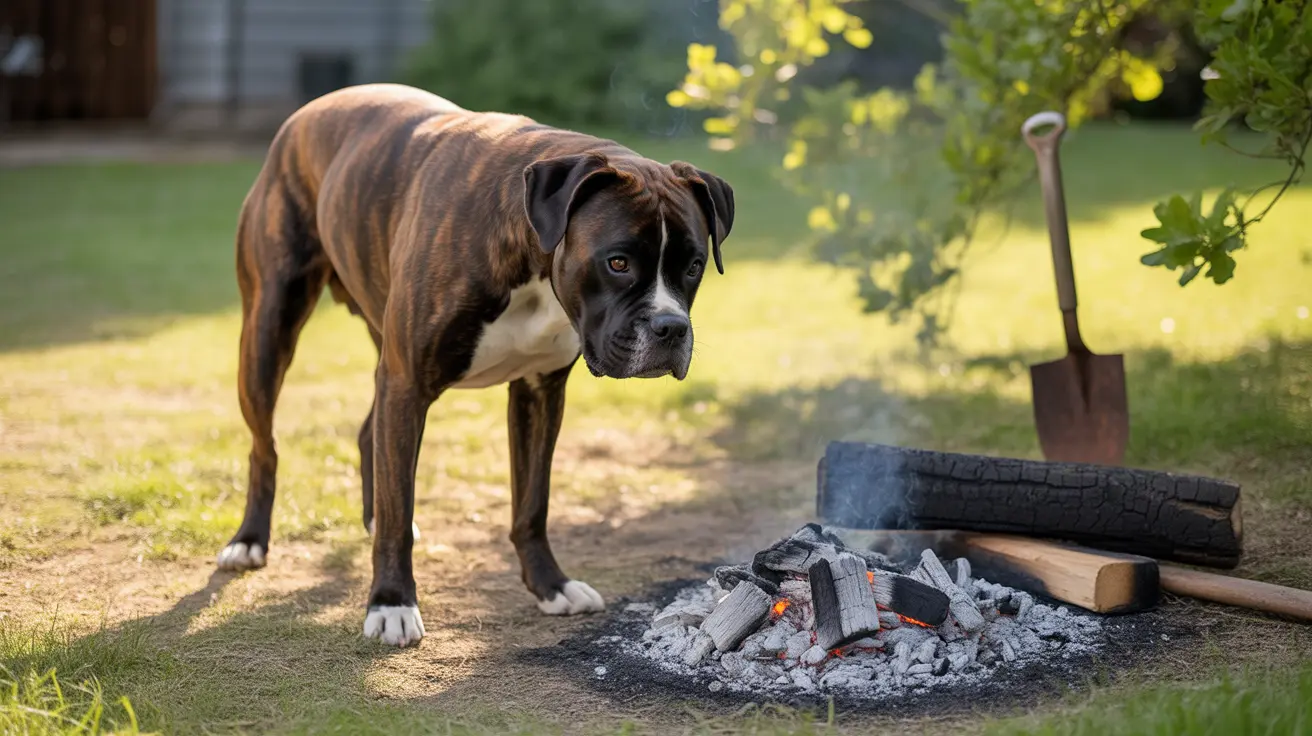Finding out your dog ate charcoal can be alarming for any pet owner. Whether it's BBQ briquettes, grill remnants, or ash, charcoal ingestion poses several potential health risks that require immediate attention. This comprehensive guide will help you understand the dangers, necessary actions, and when to seek veterinary care.
While charcoal itself isn't highly toxic to dogs, the situation can become serious depending on factors like quantity consumed, presence of chemicals like lighter fluid, and the risk of internal blockages. Understanding these risks and knowing how to respond could make a crucial difference in your pet's outcome.
Immediate Steps After Your Dog Eats Charcoal
If you catch your dog eating charcoal, take these essential first steps:
- Remove your dog from the area immediately
- Clean up any remaining charcoal to prevent further ingestion
- Offer fresh, cool water to help rinse their mouth
- Document how much and what type of charcoal was consumed
- Contact your veterinarian for guidance
Understanding the Risks of Charcoal Ingestion
Chemical Exposure Risks
Modern charcoal products often contain additives and chemicals that can be harmful to dogs:
- Lighter fluid residue can cause chemical burns
- Additives in briquettes may be toxic
- Treated wood charcoal might contain harmful compounds
Physical Complications
The physical nature of charcoal can cause several problems:
- Intestinal blockages from large pieces
- Burns from hot charcoal
- Scraping or damage to the digestive tract
- Constipation from smaller fragments
Signs of Trouble to Watch For
Monitor your dog for these symptoms after charcoal ingestion:
- Vomiting or dry heaving
- Diarrhea or constipation
- Lethargy or weakness
- Excessive drooling
- Pawing at the mouth
- Abdominal pain or distention
- Difficulty passing stool
When to Seek Emergency Veterinary Care
Don't wait to contact your vet if you observe:
- Signs of chemical burns (excessive drooling, oral pain)
- Severe vomiting or diarrhea
- Lethargy or collapse
- Difficulty breathing
- Signs of blockage (straining, lack of bowel movements)
Treatment Options and Recovery
Veterinary treatment may include:
- Diagnostic imaging to check for blockages
- Activated charcoal administration for toxin absorption
- IV fluids for hydration support
- Surgery in cases of severe blockage
- Supportive care and monitoring
Prevention Tips for Pet Parents
Protect your dog from future incidents:
- Store charcoal and grilling supplies in sealed containers
- Clean up thoroughly after grilling
- Dispose of used charcoal properly
- Keep pets away from grilling areas
- Consider fencing off outdoor cooking spaces
Frequently Asked Questions
What should I do immediately if my dog eats charcoal or charcoal briquettes?
Remove your dog from the area, offer fresh water, and contact your veterinarian immediately. Document the type and amount of charcoal consumed, and watch for symptoms like vomiting or lethargy.
Can charcoal or lighter fluid cause poisoning or burns in dogs, and what symptoms should I watch for?
Yes, both can cause poisoning and burns. Watch for excessive drooling, vomiting, difficulty breathing, oral pain, lethargy, and changes in behavior. Chemical burns from lighter fluid can cause serious internal damage.
How does activated charcoal help treat dogs that have ingested toxins, and when is it used?
Activated charcoal helps by binding to toxins in the digestive system, preventing their absorption into the bloodstream. It's typically used within 1-2 hours of toxin ingestion under veterinary supervision.
What are the risks and side effects of using activated charcoal in dogs after charcoal ingestion?
Side effects can include constipation, vomiting, diarrhea, and rarely, electrolyte imbalances. It should only be administered under veterinary guidance, as improper use can worsen some conditions.
When should I take my dog to the vet if they eat charcoal, and can charcoal cause intestinal blockages?
Take your dog to the vet immediately if they've eaten large pieces of charcoal or if any concerning symptoms develop. Yes, charcoal can cause intestinal blockages, particularly when larger pieces are swallowed.
Remember, while charcoal ingestion isn't always an emergency, it's better to err on the side of caution and consult your veterinarian for proper guidance based on your specific situation.






